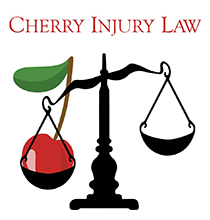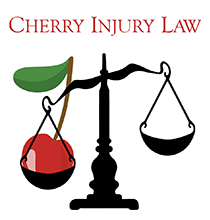Things You must do after You Encounter an Accident in the Workplace
An injury at the workplace is something that you cannot entirely rule out. The whole period can be an extensively confusing time for the person involved. Besides worrying about the injury itself, you would also be concerned with your nearby future at the work, and the legal proceedings that will follow.
Knowing all of the confusions that can arise during the process, here we guide you on what you ought to do after you suffer an accident in the workplace. This guide will clear all of your confusions and separate fact from fiction to give you an in-depth account of how you should handle an injury in the workplace.

Focus on the Injury
This is by far the most important thing required of you in the period immediately following the accident. You can think about all the due formalities later, but your injury requires immediate attention, which you’ll have to give.
Every workplace is required to have a first-aider and a first aid kit inside their office. You should immediately summon a first aider to your account, as they will be better handled to manage your injuries. The first aid expert will study the scope of your injury and give you the desired medications required by you.
Even if your injury looks minor at first glance, you should head over to an expert and have it checked. Your willingness to get the injury inspected by an expert can save you from a lot of hassle down the line.
When you’ve gotten immediate attention, you should contemplate whether to head over to a hospital or not. Your decision making skills might be deceptive in the time immediately following the accident, which is why you should let someone assess the injury and take the decision for you.
Report Accident to Colleague
If you suffered the accident while working alone, then you should make sure that your colleagues are told about what happened and how you are coping up with. This is important if you make an insurance claim later on. The occurrence of the accident shouldn’t be disputed by anyone.
You should also report an accident to any one of your colleagues, if you are looking for immediate medical attention. If you aren’t able to make it to the first-aider by yourself, call a colleague and explain your conundrum to them. They will most definitely understand the repercussions, and take action depending on the injuries.
If there is a flaw in the production line or some other fault in the process that led to your injury, then you should make sure that everyone around you is alerted so that no one else gets injured.
Report Accident to Manager
Just as we have mentioned in the point above, you should also report your injury to the manager supervising over you. The supervisor should know about the gravity of the injury and what led to it. This information is necessary for the supervisor to draft a plan for the time that you will need away from work, and what they should do to avoid such accidents in the future.
Additionally, many staff instruction manuals mention that you should immediately report an injury to your supervision manner. According to those instruction manuals, you could be charged for breaking the rules if you do not report the accident.
Make sure that you don’t immediately blame anyone immediately after the accident. The question of who to blame should be left unanswered. Unless you are sure that a glitch in the machinery caused the accident, try to leave all sweeping statements for later.
Record your Accident in the Accident Book
Every workplace or production plant has an accident book where accidents during a day, week or year are recorded. While employees are asked to record all accidents here, there isn’t enough motivation to make them do so. In fact, some employers might even try to foster an environment where days without any accidents are celebrated. With such an environment or culture you might feel guilty for reporting or recording your accident in the book, but don’t shy away from doing so. If your immediate manager stops you from writing about the accident in the report book, then head over to the top management and report the case to them. Tell them how your immediate supervisor warned you from reporting the accident in the book. Create a paper trail and don’t leave the issue unattended.
Take Photos
If the accident is severe and has caused significant injury, then you should preferably have photos with you to present in the court of law or in front of your insurance agency for a claim. Additionally, any photographic evidence can also prove to be useful, if you’re willing to safeguard yourself from a dishonorable employee who can throw you under the bus at any given time.
Keep a Record of Expenses and Loses
Once you are taken to the hospital, and your treatment and diagnosis begins, you should make sure to record every expense that is undertaken towards your recovery.
Keeping a record of your medical expenses will help you deal with the requirements of insurance agencies while filing a claim. Insurance agencies require a complete track of all the expenses that you undertook towards your injury. No expense or cost would be considered genuine if you fail to provide a proven trail for that expense.
Additionally, you should also compile all evidence together in one file before you actually visit the insurance agency. This will give them the impression that you are serious about the claim and want the due amount refunded to you. Try to remain safe at the workplace, but if an accident does occur, the protocol above will aid you.
At Cherry Injury Law, our accident lawyer in PA will negotiate aggressively for you and help bring you the best possible outcome after every accident.








 Cherry Injury Law RSS Feed
Cherry Injury Law RSS Feed



